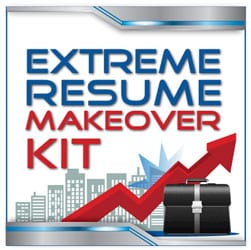Does the best resume format include an objective, a summary, a headline, or something else entirely? This crucial piece of your resume is a huge issue for most job seekers. An effective resume will catch the attention of a hiring manager in just a few seconds…so what’s the best way to get their attention and get them to call you for an interview?
Old-style resume objectives are out.
“To get a great job with a growing company where I can advance my career.”
Whatever you do, don’t write an objective anything like this. If you were a hiring manager, would you be interested in someone who wrote this? Of course not. This is a useless statement. First of all, everyone wants a great job where they can advance their career. Second, this does nothing to sell you to hiring managers. What can you do for them? This statement doesn’t say. It only talks about what YOU want.
A resume summary is better, but not by much.
A summary only repeats what’s in the rest of your resume—making it a waste of valuable space. And often what happens is that job seekers will try to include as much as possible, making for a really long ‘summary.’ That’s not effective for you.
The best resume format includes bullet points (not paragraphs) that make skimming and absorbing your resume information very easy anyway. Don’t waste this space summarizing what they can easily see below. Use this statement to sell yourself for the job.
A headline is good, but not great.
An ideal resume headline is a quick (1-2 lines attention-getter. Typically, a headline says what you are: ‘Forensic Accountant,’ ‘Public Relations Expert,’ or ‘Medical Device Sales Representative.’ It could be something more elaborate, like ‘Project Accountant with 5 Years of Experience in Aerospace,’ or ‘
Does the job title in your headline still apply to what you want? Are you switching careers or trying for a higher-level job instead of a lateral move? If so, then a headline like these may not be your best bet.
The best resume format includes a hybrid objective / headline.
The ideal statement at the top of your resume tells the reader what job you want AND sells you for the job by mention some of your experience or best ‘features.’ It highlights what you can bring to that organization.
Here’s a couple of good examples:
Certified Public Accountant with 3 years of experience in international tax services seeking an Accountant position at XYZ Corporation.
Award-winning public relations representative seeking a PR position where I can use my experience in political campaigns and marketing to support the growth of XYZ Company and its clients.
These kinds of statements market you to those companies. They say what you can bring to them in terms of your unique expertise that can help them, and they say what job you want.
Why name the job you want?
Why do you need to say what job you want? Well, what if the person who receives your resume doesn’t read your cover letter? That’s actually pretty common. Will the person who sees your resume know from looking at it what job you want? A clear statement that says what job you want will make sure that it gets to the right person (the hiring manager). You may have to rewrite it for each job.
Will saying what job you want fence you in and keep you from getting a better job with that company? No. What you need to be doing with this resume is getting your foot in the door for that interview conversation. If they see during your interview that you’re capable of another job or a higher-level job (especially because you brought a 30-60-90-Day Plan) and that job is available, they’ll offer it to you.
Naming the job you want is even more important if you don’t have the ideal background for the job. Here’s what I mean: HR searches for resumes using words from the job description as search terms. If you don’t have experience, you can’t truthfully include those job description keywords, so they can’t find you. However, your objective statement can say that you’re “seeking a position as X.” “X” is whatever that job title is, which helps your resume show up in a search. Use the rest of your statement to highlight a few important transferable skills.
Bottom Line
Your headline objective statement will serve you well if it tells who you are, what you want, and highlights one or two of your best selling points. It sells you to the hiring manager and helps you get the interview.
 *Check out our Extreme Resume Makeover Kit for a resume guaranteed to get you the interview.
*Check out our Extreme Resume Makeover Kit for a resume guaranteed to get you the interview.
